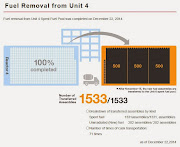According to New York Times article, the administration is considering a way to intercept North Korea's air and sea shipment suspected of carrying weapons or nuclear technology. It also wants to reverse President Bush's decision to remove North Korea from a list of states that sponsor terrorism (i.e. back to "Axis of Evil" for North Korea). According to the article:
U.S. Weighs Intercepting North Korea Shipments (6/7/09, New York Times)
"... The reference to interdictions — preferably at ports or airfields in countries like China, but possibly involving riskier confrontations on the high seas — was made by Secretary of State Hillary Rodham Clinton. She was the administration’s highest-ranking official to talk publicly about such a potentially provocative step as a response to North Korea’s second nuclear test, conducted two weeks ago."
With Middle East and Af-Pak having the Presidential czars placed on top of her (Dennis Ross and Richard Holbrooke, respectively), what's left for Mrs. Clinton that is of some importance seems to be North Korea. (Is it my imagination that Mrs. Clinton and her husband seem a little marginalized in the new administration? Mr. Clinton has been named a UN special envoy to Haiti, not the most prestigious or prominent position that the former President would have liked.)
So, it will possibly be another war, in addition to Iraq and Af-Pak:
"North Korea has repeatedly said it would regard any interdiction as an act of war, and officials in Washington have been trying to find ways to stop the shipments without a conflict. Late last week, James B. Steinberg, the deputy secretary of state, visited Beijing with a delegation of American officials, seeking ideas from China about sanctions, including financial pressure, that might force North Korea to change direction."
As mentioned in the previous post on North Korea, blockade is an act of war. Are you ready for three, simultaneous wars, Mr. President? And this one will inevitably involve the US's East Asian allies, with the heaviest blow probably to be suffered by South Korea.
China, Japan, and South Korea combined hold 46% of US Treasury securities held by foreigners. (Data: Treasury Department, as of March 2009)
戦争の経済学
-
ArmstrongEconomics.com, 2/9/2014より:
戦争の経済学
マーティン・アームストロング
多くの人々が同じ質問を発している- なぜ今、戦争の話がでるのか?
答えはまったく簡単だ。何千年もの昔までさかのぼる包括的なデータベースを構築する利点の一つは、それを基にいくつもの調査研究を行...
10 years ago



 Tokyo Time
Tokyo Time
![[Most Recent Quotes from www.kitco.com]](http://www.kitconet.com/charts/metals/gold/t24_au_en_usoz_2.gif)



0 comments:
Post a Comment